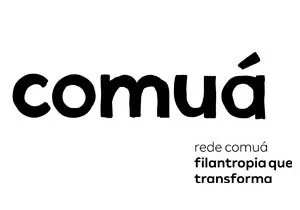Violence in the rural areas: the 2016 records
03 de May de 2017In 2016, 61 murders related to rural conflicts were recorded, equivalent to an average of five murders per month. Of these 61 murders, 13 were indigenous people,4 quilombolas, 6 women, and 16 were young people aged between 15 and 29, one of whom was an adolescent. In the last 25 years, the number of murders has only been higher in 2003, when 73 murders were recorded.
Between 2015 and 2016, all forms of violence have risen:
| 2015 | 2016 | % | |
| Murdered | 50 | 61 | 22 |
| Attempted murder | 59 | 74 | 25 |
| Death threats | 144 | 200 | 39 |
| Assaults | 187 | 571 | 206 |
| Arrested | 80 | 228 | 185 |
In 2016, the number of people arrested in rural conflicts rose by 185%. Of the total arrests, 184, more than 80% of the total, were in the North, with 88 (39%) in Rondônia alone. The state with the highest number of murders (21 of the 61) also made the most arrests. In 2016, the Legal Amazon region, which covers the entire Northern region as well as parts of Maranhão and Mato Grosso, recorded 79% of total murders, 48 of 61 records; 68% of attempted murders, 50 of 74; 391 of the 571 physical assaults; 171 of the 200 death threats, 86%; and 192 of the 228 people arrested. As well as presenting the highest number of murders and arrests, the state of Rondônia had the second highest number of assaults (141 of a total of 571), the second highest number of death threats (40 out of 200) and, together with Mato Grosso do Sul, the third highest number of attempted murders (10).
Four dark shadows, based on violence
Leonardo Boff asserts that “we are the inheritors of four shadows that weigh on us and out of which originated and originate violence”. These are: our violent colonial past, the indigenous genocide, slavery, “the most terrible of all” and the Land Law which excluded the poor and Afro-descendants from accessing land, and handed them over “to the arbitrary nature of large-scale landowners, subjected them to labour without social guarantees”.
From the Pastoral Land Commission (Comissão Pastoral da Terra: CPT): http://www.mst.org.br/2017/04/17/violencia-os-recordes-de-2016.html
SEE WHAT THEY SAY ABOUT US
When we hear talk of the struggles of the peoples of the waters, of the forests, of the semi-arid region, of the city peripheries and of the most varied organizations, we see and hear that CESE is there, at their side, without replacing the subjects of the struggle. Supporting, creating the conditions so that they can follow their own path. It is this spirit that we, at ASA, want you to maintain. We wish you long life in this work to support transformation.
You have to praise CESE’s capacity to find answers so as to extend support to projects from traditional peoples and communities, from family farming, from women; its recognition of the multiple meanings of the right to land, to water and to territory; the importance of citizenship and democracy, including environmental racism and the right to identity in diversity in its discussion agenda, and its support for the struggles and assertion of the values of solidarity and difference.
CESE was set up during the most violent year of the Military Dictatorship, when torture had been institutionalized, when arbitrary imprisonment, killings and the disappearance of political prisoners had intensified. The churches had the courage to come together and create an institution that could be a living witness of the Christian faith in the service of the Brazilian people. I’m so happy that CESE has reached its 50th anniversary, improving as it matures.
Over these 50 years, we have received the gift of CESE’s presence in our communities. We are witness to how much companionship and solidarity it has invested in our territories. And this has been essential for us to carry on the struggle and defence of our people.
In the name of historical and structural racism, many people look at us, black women, and think that we aren’t competent, intelligent, committed or have no identity. Our experience with CESE is different. We are a diverse group of black women. We are in varied places and have varied stories! It’s important to know this and to believe in us. Thank you CESE, for believing in us. For seeing our plurality and investing in us.
I am a macumba devotee, but I love being with partners whose thinking is different from ours and who respect our form of organization. CESE is one such partner: it helps to build bridges, which are so necessary to ensure that freedom, diversity, respect and solidarity can flow. These 50 years have involved a lot of struggles and the construction of a new world.




















